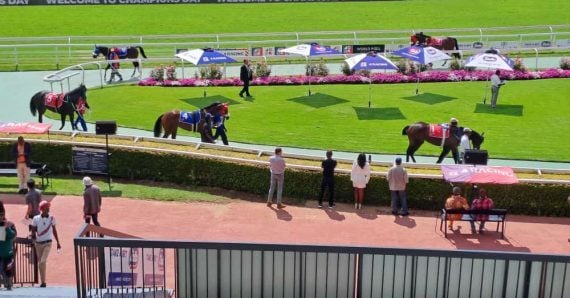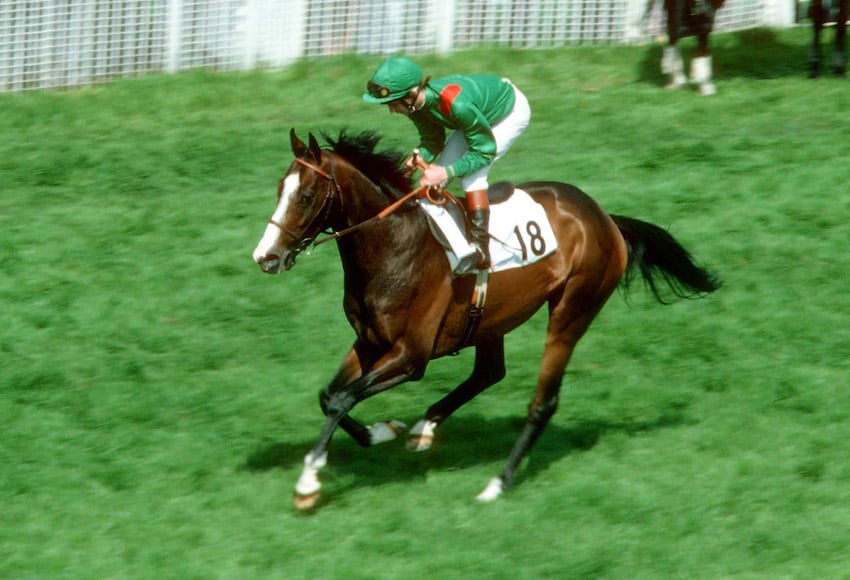Light dependency underlies beneficial jetlag in racehorses
A new study has shown that racehorses are extremely sensitive to changes in daily light and, contrary to humans, can adapt very quickly to sudden shifts in the 24-hour light-dark cycle, such as those resulting from a transmeridian flight, with unexpected benefits on their physical performance. The research led by academics in the University of Bristol’s Faculty of Medical and Veterinary Sciences is published in the Journal of Neuroendocrinology.
This is the first study of its kind to investigate the effects of jetlag on the physiology and performance of racehorses under tightly controlled experimental conditions. Horses are the only athletes, apart from humans, regularly flown across time zones for athletic competitions. Dr Domingo Tortonese, Senior Lecturer in Anatomy in the School of Veterinary Sciences, who led the study, said: “We tested the hypothesis that abrupt alterations in the 24-hour light-dark cycle, such as those associated with the crossing of time-zones, would alter the molecular clockwork and neuroendocrine systems of racehorses with detrimental consequences on their athletic performance. In humans, air travel-associated sudden changes in the 24-hour light-dark cycle disrupt biological rhythms with negative effects on cognitive and physical performance. Indeed, jetlag has important implications for athletes who travel across time zones for competitive sporting events, particularly after an easterly flight.
“Our study shows that racehorses are different from humans in that they rely on light cues for their daily rhythms of activity, rather than for the synchronisation of an endogenously generated rhythm to the 24-hour light-dark cycle. This light dependency underlies a rapid process of adaptation with critical scientific implications and unexpected practical benefits.” Thoroughbred horses with previous race training were housed in light-controlled rooms and put through a fitness program of daily sessions of exercise on a high–speed treadmill at variable times of the day for three months. They then experienced a shift in the 24-hour light-dark cycle that mimicked an easterly flight across seven time zones. The 24-hour patterns of four clock genes, together with neuroendocrine systems involved in a variety of functions, including time measurement, homeostasis and the response to stress, were investigated before and after the shift. The aerobic and anaerobic capacities were measured by standardised performance tests. Locomotor activity was also assessed continuously, under photoperiodic conditions and in the absence of light cues (constant darkness), to determine the expression and robustness of a 24-hour rest-activity cycle.
The speed of re-adaptation to a new light-dark cycle was also investigated. Contrary to the prediction based on human and rodent data, the results show that whereas horses are extremely sensitive to sudden changes in the 24-hour light-dark cycle, they can adapt very quickly to a phase shift. Importantly, this rapid adaptation is not accompanied by an increase in the level of stress, but by alterations in endocrine systems that favour an enhancement of the horse’s physical capacity during the process. The improvement in athletic performance following experimental jetlag resulted in the animals being able to run at full gallop for an additional 25 seconds before reaching fatigue. This differs from humans who show a slow adjustment, particularly after an eastbound flight, with detrimental consequences on performance. The difference between the two species can be attributed to the powerful masking effect of light on the horse’s daily locomotor activity, which, together with the absence of a robust sleep-wake cycle, can be a part of a mechanism of adaptation to sudden changes in the environment. The results of this study have important practical implications, since equine athletes do not need to travel to be subjected to changes in daily light, and its beneficial consequences could help to reduce the level of injury in competitions.









